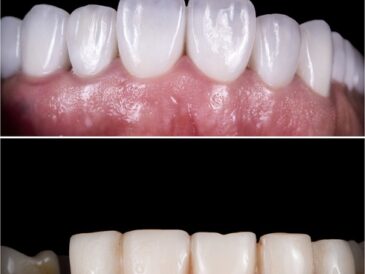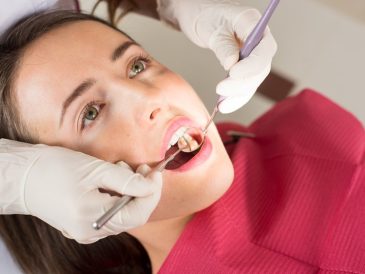Stepping into a dental office, you might notice the array of professionals who are there to ensure your oral health is taken care of meticulously. From the initial greeting at the reception to the final follow-up, each member of the dental team plays a crucial role. Let’s dive into the diverse array of roles that make up the dental office team.
Dentists
The dentist is effectively the captain of the dental ship, holding the primary responsibility for your oral health care. These highly skilled individuals have undergone extensive education, including undergraduate degrees and four years of dental school, to earn their Doctor of Dental Surgery (DDS) or Doctor of Dental Medicine (DDM) degrees. Dentists can also pursue specializations, which require additional training. Their primary responsibilities include:
-
Diagnosing oral diseases.
-
Creating treatment plans to maintain or restore oral health.
-
Interpreting x-rays and diagnostic tests.
Dentists perform a wide range of procedures, from filling cavities to sophisticated surgeries, and they must be licensed in the state they practice in. Many people experience anxiety when it comes to dental treatments. This is why dental professionals are committed to ensuring that patients receive comfortable dental care in Texas.
Sedation and pain management techniques are often available to help patients relax during their procedures, making the experience as painless and stress-free as possible.
Root Canal Treatment
Among the specialized procedures performed in dental offices, root canals are common. If you’re experiencing severe tooth pain, an endodontist in the dental team can find out more about root canal treatment options for you, easing discomfort and preserving your tooth’s integrity.
Hygienists
Dental hygienists work side by side with dentists, focusing on preventive oral health. They typically hold an associate degree in dental hygiene, though some may pursue further education. Key tasks for hygienists include:
-
Performing oral health assessments that include screening and reviewing health history, dental charting, oral cancer screening, and evaluation of gum disease.
-
Removing plaque and calculus from teeth through cleaning and tooth scaling.
-
Applying preventive materials such as sealants and fluorides.
They also educate patients about proper oral hygiene techniques and maintaining good oral health.
Dental Assistants
Dental assistants are multitaskers in the dental office, providing hands-on support to dentists during procedures and taking care of various organizational tasks. With a diploma or certificate in dental assisting, these professionals are adept at:
-
Assisting with and preparing for dental procedures.
-
Sterilizing instruments and ensuring hygiene standards are met.
-
Taking dental x-rays and processing the film.
Not all tasks are clinical, as they often help with patient management and administrative duties as well.
Office Managers
Behind every efficient dental office is an office manager who keeps the business aspect running smoothly. While the specifics can vary widely depending on the size and structure of the practice, these individuals usually take on tasks such as:
-
Scheduling patient appointments and organizing the office’s workflow.
-
Handling billing, insurance forms, and financial arrangements.
-
Managing staff and maintaining office policies.
Excellent organizational and communication skills are a must for office managers, ensuring that both the business and patient care aspects are in harmony.
Specialized Dental Professionals
Some dental practices feature specialized dental professionals who have received additional training in specific areas of dentistry. These may include:
-
Orthodontists who specialize in the diagnosis, prevention, and treatment of dental and facial irregularities.
-
Endodontists who are focused on diagnosing and treating issues related to the dental pulp and root of the tooth.
-
Periodontists who treat diseases of the gum and bone supporting the teeth.
Each of these specialists contributes to the comprehensive care that a dental office provides.
Receptionists
Receptionists are the friendly faces that greet you upon entering a dental office. They set the tone for the patient experience and handle important tasks like:
-
Scheduling and confirming appointments.
-
Gathering and updating patient records.
-
Facilitating patient check-in and check-out processes.
Effective communication and organizational skills are indispensable for these professionals as they bridge the gap between patients and dental services.
Operational Staff
Maintenance, cleaning crews, and other operational staff members are unsung heroes in a dental office. While their work may be behind the scenes, it’s crucial for:
-
Ensuring the practice is clean, sanitized, and a safe environment for both staff and patients.
-
Managing the stock of dental supplies and equipment.
-
The overall upkeep of dental practice facilities.
Without their diligent work, the dental office could not function effectively.
Choosing Your Local Dental Office
When seeking dental professionals, the proximity and accessibility of a local dental office are key factors for convenience and emergency accessibility. A nearby, well-rounded dental team can provide continuity of care, which is essential for maintaining long-term dental health.
Closing Remarks
The variety of dental professionals within a dental office showcases a dedicated team approach to oral health care. From the expertise of dentists and specialists to the supportive roles of hygienists, assistants, and operational staff, every member plays a vital part in providing comprehensive dental services to the community. Knowing the different roles and what each professional does can help patients feel more informed and at ease during their dental visits, ensuring that they are in capable hands every step of the way.






